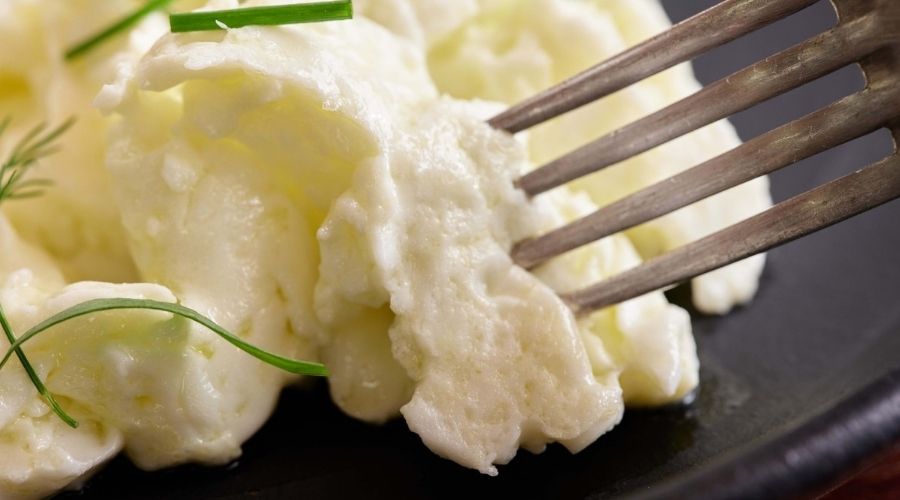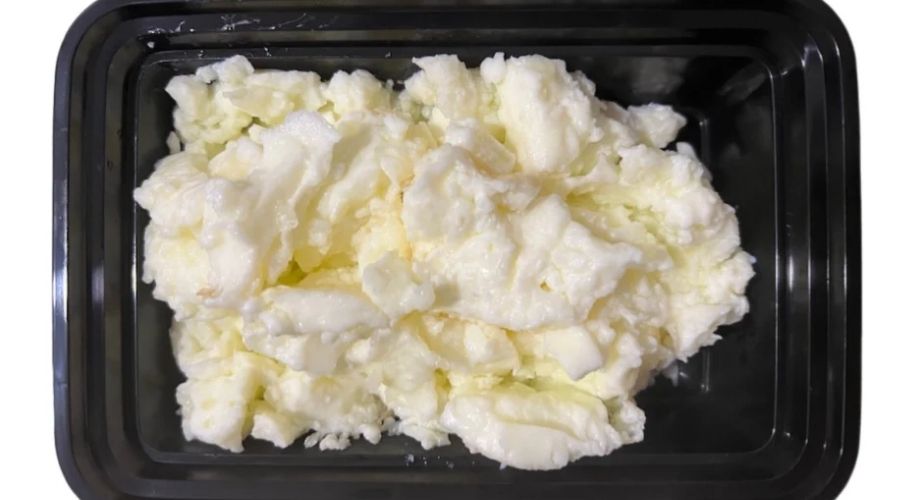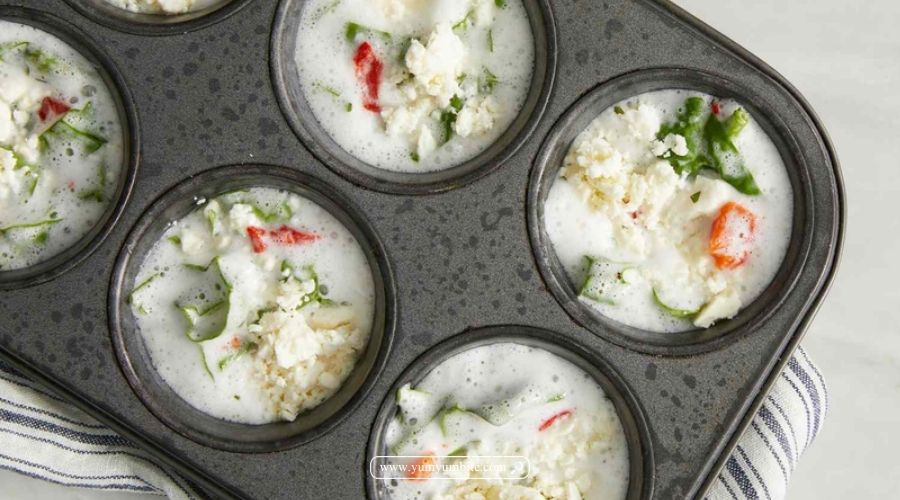Egg whites are a versatile, protein-packed ingredient often used in healthy recipes, from fitness shakes to baked goods.
Whether you’ve prepared a large batch for meal prep or have leftover whites after cooking a dish, knowing how to store cooked egg whites properly is essential to maintain their freshness and nutritional value.
Improper storage can lead to spoilage, affecting both taste and safety.
This guide will walk you through the best methods to store cooked egg whites, ensuring they remain delicious and safe to eat for days to come.
Why Storing Cooked Egg Whites Properly Matters
Storing cooked egg whites properly is crucial for maintaining their safety, texture, and nutritional value. Egg whites are a rich source of protein and are often used in healthy meals or as part of various recipes.
However, if not stored correctly, they can quickly become a breeding ground for harmful bacteria, leading to foodborne illnesses.
Proper storage also helps to preserve the light, fluffy texture that makes egg whites a versatile ingredient.
Whether you’re saving leftovers or meal prepping, understanding the right way to store cooked egg whites ensures they stay fresh and safe to consume, preventing unnecessary waste and protecting your health.
How to Store Cooked Egg Whites: A Complete Guide

Proper storage of cooked egg whites is essential to maintain their freshness, safety, and quality.
Whether you’re meal prepping or saving leftovers, following these steps will help ensure your cooked egg whites remain in good condition for future use.
1. Cool the Egg Whites Before Storing
After cooking your egg whites, allow them to cool at room temperature for about 10-15 minutes.
Avoid placing hot or warm egg whites directly into the refrigerator, as this can create condensation, which might lead to spoilage.
2. Choose the Right Storage Containers
Use airtight containers or resealable plastic bags to store your cooked egg whites. The airtight seal prevents exposure to air and moisture, which can cause the egg whites to lose their texture and freshness.
If you’re using resealable bags, try to squeeze out as much air as possible before sealing.
3. Refrigerating Cooked Egg Whites
Place the cooked egg whites in the refrigerator within two hours of cooking. Store them at a temperature of 40°F (4°C) or lower to keep them fresh.
Cooked egg whites can last in the fridge for up to 3-4 days.
Be sure to label the container with the storage date to keep track of their freshness.
4. Freezing Cooked Egg Whites for Long-Term Storage
If you want to store your cooked egg whites for a longer period, freezing is a great option.
Place the egg whites in a freezer-safe airtight container or a resealable freezer bag. They can be frozen for up to 2 months.
To thaw, simply transfer them to the refrigerator overnight.
5. Reheating Cooked Egg Whites
When you’re ready to use your stored egg whites, reheat them in a microwave or on the stovetop.
Ensure they are heated thoroughly before consumption, especially if they’ve been refrigerated or frozen for an extended time.
6. Avoid Repeated Heating and Cooling
To maintain the quality and safety of your cooked egg whites, avoid reheating and cooling them multiple times.
This can increase the risk of bacterial growth and lead to a loss in texture and flavor.
By following these guidelines, you can safely store and enjoy your cooked egg whites without compromising their quality or safety.
What to Look for While Storing Cooked Egg Whites

When storing cooked egg whites, several key factors ensure they remain fresh, safe, and ready to eat.
Here’s what you should keep in mind:
1. Proper Temperature
Always store cooked egg whites in the refrigerator at a temperature of 40°F (4°C) or lower.
Proper refrigeration prevents bacterial growth and helps maintain freshness.
2. Airtight Containers
Use airtight containers or resealable bags to store cooked egg whites. Airtight storage prevents exposure to moisture and air, which can cause spoilage and affect the texture.
3. Labeling and Date Tracking
Always label your container with the date of storage. This helps you track how long the egg whites have been in the fridge or freezer, ensuring you consume them within the safe period.
4. Visual and Smell Check
Before consuming stored egg whites, check for any discoloration, changes in texture, or off smells. Freshly stored egg whites should have a consistent appearance and no sour odor.
5. Consistent Refrigeration
Avoid leaving cooked egg whites out of the refrigerator for extended periods.
Keeping them consistently chilled ensures food safety and longevity.
6. Freeze When Necessary
If you won’t be consuming the egg whites within 3-4 days, freezing is a good option.
Make sure they’re properly sealed in freezer-safe containers to avoid freezer burn.
Following these simple steps ensures that your stored cooked egg whites remain fresh, safe, and ready for your next meal.
How to Choose the Right Accessories for Storing Cooked Egg Whites
Selecting the right accessories for storing cooked egg whites is essential to maintain freshness and prevent spoilage. Here are a few key considerations:
1. Airtight Containers
Choose high-quality airtight containers made of glass or BPA-free plastic. These prevent air from entering, which helps to preserve the texture and flavor of the egg whites while reducing the risk of contamination.
2. Resealable Plastic Bags
For a space-saving option, resealable plastic bags are great for storing cooked egg whites.
Ensure they are sturdy and designed for food storage, as thinner bags may puncture or allow air in. Squeeze out as much air as possible before sealing.
3. Freezer-Safe Containers
If you’re planning to freeze cooked egg whites, use containers that are specifically labeled as freezer-safe. These prevent freezer burn and ensure the egg whites retain their quality for longer.
4. Food Labels
Invest in reusable food labels and a marker to easily track the storage date. Keeping track of the storage period ensures you consume the egg whites within their safe timeframe.
5. Stackable Containers
Opt for stackable containers if you need to maximize refrigerator space. These are ideal for efficient storage without crowding your fridge or freezer.
6. Portion-Sized Containers
Consider portion-sized containers if you plan to use the egg whites in small amounts.
This prevents thawing or reheating more than you need, helping to retain freshness for the remaining portions.
By selecting the right accessories, you can ensure that your cooked egg whites are stored properly and ready for use whenever you need them.
How To Tell If Cooked Egg Whites Are Bad After Storing
Knowing when cooked egg whites have gone bad is essential to avoid foodborne illness and ensure you’re consuming fresh ingredients. Here are key signs to look for:
1. Off Smell
Spoiled cooked egg whites will develop a sour or sulfur-like smell. If the egg whites emit any unpleasant odors, it’s best to discard them immediately.
2. Change in Texture
Freshly cooked egg whites have a firm, smooth texture. If they become slimy, mushy, or overly watery, this is a sign that they’ve gone bad and should not be consumed.
3. Discoloration
Cooked egg whites should be translucent white. If you notice any unusual colors, such as gray, green, or yellowish patches, it indicates spoilage or contamination.
4. Mold Growth
Visible mold is a clear sign of spoilage.
If you spot any dark spots, fuzzy patches, or mold growing on the surface, throw the egg whites out immediately.
5. Storage Duration
Even when stored correctly, cooked egg whites have a limited shelf life. If they’ve been in the refrigerator for more than 3–4 days, or in the freezer for over two months, they may no longer be safe to eat. Check the storage time to determine if they’re still good.
By staying alert to these signs, you can easily tell if your cooked egg whites have gone bad and ensure safe consumption.
1. How long can I store cooked egg whites in the refrigerator?
Cooked egg whites can be stored in the refrigerator for up to 3–4 days.
Ensure they are placed in an airtight container to maintain freshness and prevent absorption of other odors from the fridge.
2. Can you freeze cooked egg whites?
Yes, you can freeze cooked egg whites. Place them in an airtight freezer-safe container or freezer bag.
They can last in the freezer for up to 2 months. Be sure to label the container with the date for easy tracking.
3. How should I thaw frozen cooked egg whites?
To thaw frozen cooked egg whites, transfer them from the freezer to the refrigerator. Let them thaw slowly overnight for the best results.
Avoid thawing at room temperature, as this can encourage bacterial growth.
4. Can I store cooked egg whites at room temperature?
No, it’s not safe to store cooked egg whites at room temperature. They should be refrigerated or frozen immediately after cooking.
Leaving them out at room temperature for more than 2 hours can lead to bacterial contamination.
5. How can I prevent cooked egg whites from getting watery during storage?
To prevent cooked egg whites from becoming watery, store them in an airtight container and avoid placing any moisture in the container.
Using a paper towel to absorb excess moisture in the container can also help.
6. Do cooked egg whites lose nutritional value when stored?
No, cooked egg whites retain their nutritional value when stored properly.
However, their texture and flavor may change slightly after freezing, but their protein content and other nutrients remain intact.
7. Can I store egg whites with other cooked foods in the same container?
It’s best to store cooked egg whites in a separate, airtight container to prevent them from absorbing flavors or odors from other foods.
This also helps maintain their texture and freshness.
Conclusion
Storing cooked egg whites is simple if you follow the right steps.
Whether you’re refrigerating or freezing them, using airtight containers, and avoiding excessive moisture will keep them fresh for longer periods.
With these tips, you’ll not only preserve their flavor and texture but also reduce food waste.
Next time you whip up a dish using egg whites, you’ll be confident in knowing how to store the extras efficiently, ensuring you can enjoy them for future meals.
References
- https://www.eatingbirdfood.com/scrambled-egg-whites/
- https://www.foodfaithfitness.com/scrambled-egg-whites/
- https://fdc.nal.usda.gov/fdc-app.html#/food-details/2342645/nutrients
- https://www.bbcgoodfood.com/howto/guide/top-10-ways-leftover-egg-whites-and-yolks


